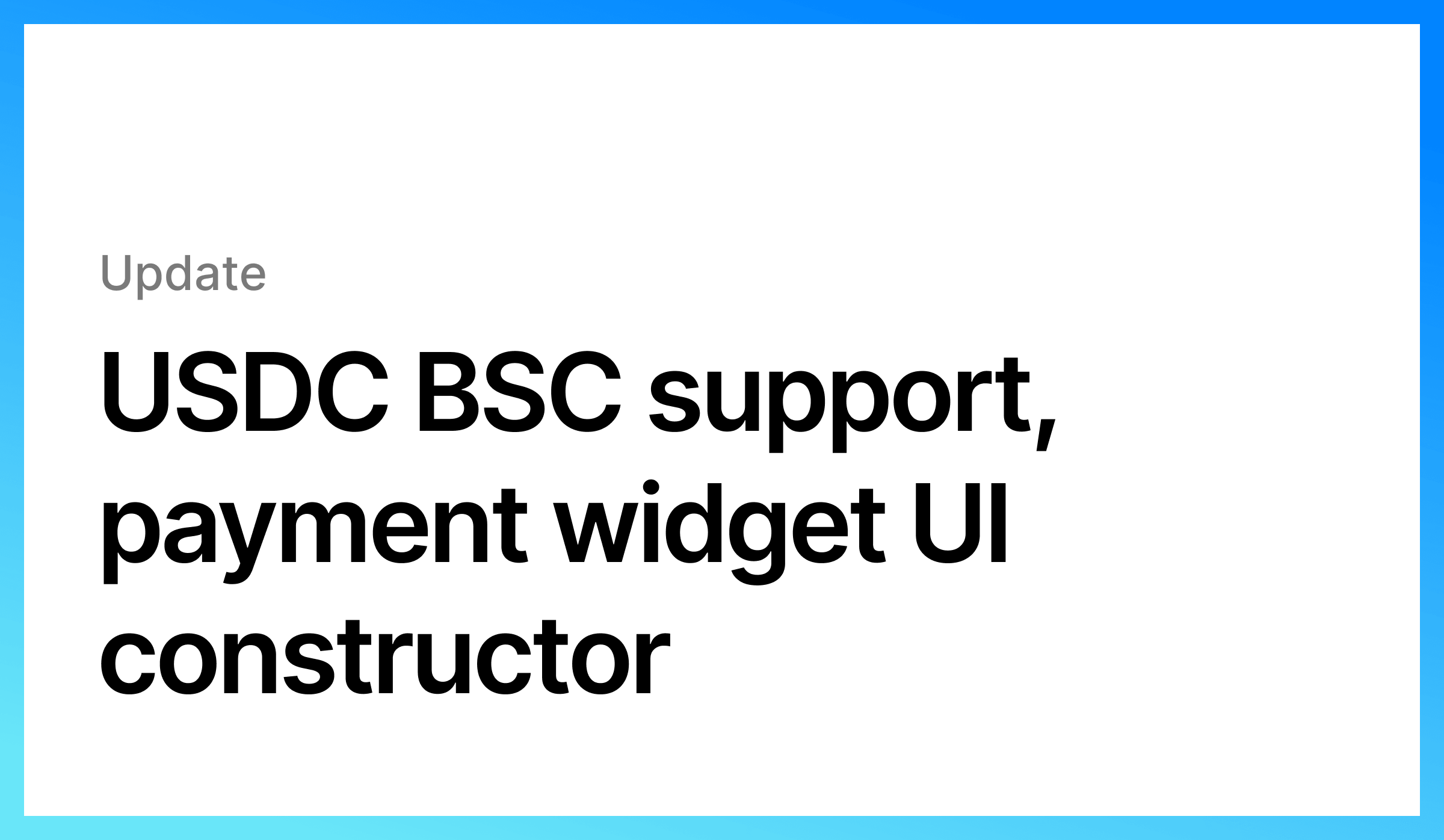How to Convert Bitcoins to Cash
Introduction
Looking to cash out your Bitcoin holdings? You're not alone. With the rise of cryptocurrency, many are seeking ways to convert their digital assets into fiat currency. Fortunately, there are several options available, including exchanges, ATMs, and peer-to-peer platforms. In this guide, we'll explore the various methods for cashing out Bitcoin, examining factors like fees, transaction limits, and regulatory considerations. Whether you're a seasoned investor or new to the world of crypto, understanding the cash-out process is essential for managing your digital assets effectively and accessing real-world funds when needed.
Cash in Bitcoins
You've taken the plunge and invested in Bitcoin, but now you're considering cashing out. While it's not as simple as withdrawing cash from an ATM, the process of cashing out Bitcoin has become increasingly streamlined in recent years. Yes, there are multiple avenues to convert your Bitcoin into fiat currency, but it's crucial to understand the considerations involved before you proceed.
1. Crypto exchange
Utilizing centralized crypto exchanges remains one of the most efficient methods to convert Bitcoin or other cryptocurrencies into cash. These platforms boast extensive coin offerings, support for multiple fiat currencies, and competitive trading fees, offering unparalleled flexibility for cashing out crypto assets.
However, it's essential to be mindful of the associated fees. Many exchanges impose steep charges for their basic "sell my crypto" service. For instance, Coinbase levies a $0.99 fee for transactions under $10, equivalent to nearly 10% of the transaction value. Larger transactions attract fees of around 1.50%. To mitigate these costs, users can opt for Coinbase's "Advanced Trade" platform, boasting fees as low as 0.60%, albeit with a more complex user interface.
For a more cost-effective approach, platforms like Binance.us or FTX.us emerge as optimal choices. These exchanges offer competitive fees and seamless mobile apps, facilitating swift cashouts of crypto assets. Additionally, users can easily link their bank accounts to transfer funds post-crypto sale, streamlining the entire process.
2. Online broker
Numerous prominent online brokers now facilitate crypto trading, allowing users to swiftly exchange their Bitcoin holdings for cash. Platforms like Robinhood offer a diverse array of cryptocurrencies for investment, enabling seamless buying and selling experiences akin to traditional crypto exchanges.
However, there's a caveat with these online brokers. They typically don't permit users to transfer crypto assets into the brokerage. Instead, you must hold your Bitcoin within the platform to execute cash transactions. Consequently, if your Bitcoin resides in a digital wallet or on a crypto exchange, you're unable to transfer it to an online brokerage for selling.
Despite this limitation, online brokerages often impose reasonable trading fees for selling crypto. For instance, eToro levies a flat 1% trading fee, which is comparatively low. Robinhood's crypto trading fees hover around 0.50% on average, although they don't publicly disclose precise figures.
In summary, utilizing an online broker to sell Bitcoin for cash proves advantageous when your crypto assets are already housed within the platform.
3. Bitcoin ATM
Bitcoin ATMs have proliferated globally, offering convenient access to cryptocurrency. Typically stationed in gas stations or grocery stores, these physical kiosks facilitate the purchase of crypto using cash or digital wallets. While most support Bitcoin purchases, only select ATMs enable Bitcoin-to-cash transactions.
Here's how it works:
- Locate an ATM: Use tools like Coin ATM Radar to find nearby crypto ATMs, filtering for those supporting crypto sales.
- Select "Sell": Choose the sell option on the ATM's interface to initiate the Bitcoin-to-cash transaction.
- Provide ID Verification: You'll need to provide identity verification documentation, such as a driver’s license, to comply with regulatory requirements.
- Access Your Digital Wallet: Open your digital wallet containing the Bitcoin you wish to sell.
- Scan the QR Code: Scan the Bitcoin ATM's QR code to initiate the transaction and send your Bitcoin to the designated ATM address.
- Receive Cash: Once the transaction is confirmed, the ATM will dispense cash equivalent to the value of the Bitcoin sold.
However, the drawback lies in the exorbitant fees associated with Bitcoin ATMs. In addition to network fees, service and transaction fees can soar beyond 15% per transaction, detracting from the convenience of this cash-access method.
4. Crypto debit card
Crypto debit cards are gaining popularity as a means to access your crypto holdings for everyday spending. Linked to centralized crypto exchange accounts, these cards allow seamless conversion of crypto to cash for purchases.
For instance, Coinbase offers a VISA debit card tied to your Coinbase crypto balance. It automatically converts your selected crypto into cash for transactions, with potential crypto rewards deposited into your account. Additionally, the Coinbase card facilitates ATM withdrawals up to $1,000 daily, sans additional fees from Coinbase.
However, the downside lies in the fees associated with cashing out crypto via ATM. Coinbase imposes high fees for small purchases, making it a pricey option. Alternatively, the Crypto.com VISA debit card offers lower fees, though ATM limits may vary.
5. Peer-to-peer crypto trading
Bitcoin, designed for peer-to-peer transactions, finds its essence in decentralized exchanges. Peer-to-peer (P2P) crypto platforms enable direct Bitcoin sales for cash, offering several advantages:
- Lower fees: P2P exchanges typically feature lower fees and allow price negotiation with buyers.
- No ID verification: Unlike many traditional exchanges, P2P platforms often don't mandate identity verification.
To utilize a P2P exchange, you transfer Bitcoin from your wallet to the buyer's, receiving payment via platforms like Zelle or PayPal. Popular P2P exchanges include:
- Bisq
- LocalBitcoins
- LocalCoinSwap
Some centralized exchanges like Binance and KuCoin also offer P2P options.
However, challenges like fund loss risks and the time-consuming selling process persist.
6. Crypto wallet
Many crypto wallets integrate exchange services, enabling direct conversion of crypto into cash. While wallets prioritize security, partnerships with exchanges facilitate trading.
Prominent hardware wallets like Ledger and Trezor offer cash-out options. Ledger's "Ledger Live" service collaborates with Coinify for Bitcoin sales. Trezor's "Trezor Suite" partners with Simplex and other providers for crypto-to-fiat transactions.
However, selling from wallets incurs fees, typically ranging from 3% to 5%. Despite the cost, it's a viable option for immediate cash needs without transferring Bitcoin to an exchange.
7. Money transfer apps
Most money transfer apps now offer crypto trading features, including Cash App and PayPal. These built-in exchanges simplify both crypto purchases and cashing out.
However, to cash out, you must already hold crypto within the app. These apps don't support transferring external crypto for selling.
Once you have crypto in Cash App or similar apps, selling is straightforward, albeit with a reasonable fee.
However, these apps support only a limited selection of crypto, with Cash App mainly supporting Bitcoin and PayPal offering Bitcoin, Bitcoin Cash, Ethereum, and Litecoin.
8. Spend it at a crypto-friendly business
If you're keen on converting your crypto holdings for everyday expenses, you can directly spend them at crypto-friendly businesses. Many retailers now accept Bitcoin and other cryptocurrencies for purchases, with some even allowing you to buy items like Tesla accessories using Dogecoin.
As Bitcoin gains traction globally, more businesses are adopting a "Buy with Bitcoin" option at checkout. Look for storefront stickers or the Bitcoin symbol during online checkout.
To make a purchase with Bitcoin, simply transfer the required amount to the retailer's digital wallet using a QR code or by entering the wallet address in your digital wallet.
While spending Bitcoin doesn't directly convert it into cash, it allows you to use your Bitcoin for transactions. Keep in mind that blockchain transactions may incur network fees, particularly during periods of crypto market volatility.
Considerations When Cashing Out Bitcoin
Transactional costs on P2P platforms
P2P platforms offer the convenience of trading significant amounts of crypto, but they come with drawbacks like low transactional limits and high fees. While you can trade hundreds or thousands of dollars on these platforms, limits often cap at $1000 per day. However, exceptions like Binance P2P exist, offering fee-free transactions and no trading limits.
Restrictions on trading and withdrawal amounts
Peer-to-peer trading allows for Bitcoin transactions, but cashing out large amounts often faces daily withdrawal restrictions on many third-party crypto trading platforms. Additionally, scrutiny is a possibility. Different payment methods come with practical daily trading limits. For instance, on LocalBitcoins, tier 2 KYC verified accounts have a maximum yearly trading limit of 200,000 Euros, while tier 3 accounts may have no specific limits.
Navigating Regulatory Attention
Large Bitcoin transactions can trigger regulatory scrutiny, especially when converting substantial amounts to fiat currency. Banks may flag such transactions for potential money laundering, leading to account freezes or other restrictions.
Taxes
In jurisdictions where capital gains are subject to taxation, selling or cashing out any amount of cryptocurrency triggers tax reporting obligations. While this may not be a concern for traders or holders with minimal holdings, significant investors and corporate entities encounter challenges when dealing with substantial crypto transactions. The tax implications can be substantial, particularly in regions where capital gains are taxable.
Speed
Opting for an exchange that facilitates swift and reliable conversion of Bitcoin into cash is crucial, particularly considering that third-party broker exchanges may require up to two days to transfer funds to your bank account. Therefore, selecting an exchange that offers efficient cash-out processes is paramount for timely access to your funds.
Conclusion
In conclusion, converting Bitcoin to cash entails navigating various methods, each with its pros and cons. Centralized exchanges offer flexibility but come with high fees, while P2P platforms provide low fees but limited transactional volumes. Cash-out methods like ATMs and debit cards offer convenience but at a cost. Moreover, regulatory scrutiny and tax implications add complexity, particularly for large transactions. Therefore, users must weigh factors like fees, convenience, regulatory compliance, and tax obligations when choosing a cash-out method. Ultimately, selecting a reliable and efficient platform is crucial for seamlessly converting Bitcoin into cash.
FAQ
Can you cash out Bitcoin for real money?
Yes, you can cash out Bitcoin for real money through various methods such as cryptocurrency exchanges, peer-to-peer platforms, Bitcoin ATMs, and crypto debit cards.
How do I cash out my Bitcoin?
You can cash out your Bitcoin by selling it on cryptocurrency exchanges, using peer-to-peer trading platforms, withdrawing cash from Bitcoin ATMs, or converting it to fiat currency with crypto debit cards.
Can I cash out Bitcoin to my bank account?
Yes, you can cash out Bitcoin to your bank account by selling it on cryptocurrency exchanges that support fiat withdrawals or by using peer-to-peer trading platforms linked to your bank account.
Why can't I cash out my Bitcoin?
You may encounter difficulties cashing out Bitcoin due to factors such as limited withdrawal options on certain platforms, regulatory constraints, or technical issues with the exchange or wallet you're using.






